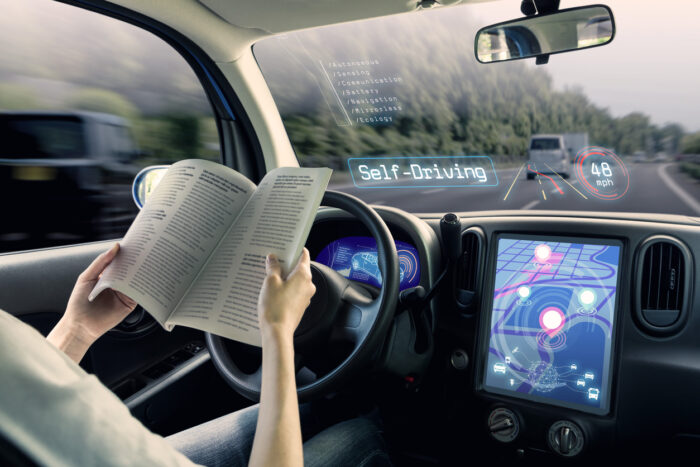Ryan Zavodnick | September 19, 2024 | Car Accidents

Electric cars are everywhere these days. They’re quiet, environmentally friendly, and packed with tech. But how do they stack up when it comes to safety? Are they safer than your traditional gas-powered car? We’ll take a look below.
Unfortunately, no car, whether electric or gas-powered, is ever completely safe. If you or a loved one has been injured in a car accident, a personal injury attorney in Philadelphia, PA, can be your best ally, making the journey to justice much easier.
Fire Risk
We’ve all seen headlines about car fires, including the infamous Ford Pinto. So, which one is more likely to catch fire—an electric car or a gas car?
Gas cars run on gas–a highly flammable liquid. Fuel lines can rupture in a severe crash and cause fires or explosions. While modern gas cars have safety features to reduce this risk, it’s always possible.
On the other hand, electric cars use lithium-ion batteries, which can also catch fire. However, research shows that electric vehicles are less likely to catch fire than gas cars. When they do, though, battery fires can be harder to extinguish and may reignite. So, while electric cars have fewer fires, those fires can be trickier to handle.
Crash Safety
Electric cars are generally heavier than gas cars due to their large batteries. Why does that matter? Heavier cars can fare better in crashes because they can absorb more energy upon impact, meaning less force is transferred to the occupants. This weight advantage often leads to better crash test ratings for electric cars.
Moreover, electric cars don’t have a traditional engine in the front, allowing engineers to design better “crumple” zones. Crumple zones absorb energy during a crash, keeping you safe inside. With no bulky engine, there’s more flexibility in how these zones can be optimized.
Technology
Electric vehicles (EVs) are often loaded with cutting-edge tech that can boost safety. Most electric cars come standard with features like lane-keeping assist, automatic emergency braking, and adaptive cruise control. These features can help prevent accidents in the first place, making the car safer overall.
Gas cars also have access to similar safety tech, but they often come as optional add-ons rather than standard equipment. In many electric cars, the latest safety features are baked into the design from the get-go, giving you an edge in terms of tech-driven protection.
Battery Safety
One question that pops up is whether electric cars pose a shock hazard, especially after a crash. The short answer: not really. Electric cars are designed with multiple safety systems to prevent any kind of dangerous electric shock. If there’s an accident, the car automatically shuts off its high-voltage system, reducing any risk to passengers or first responders.
In comparison, gas cars carry the risk of fuel leaks after a crash, which can lead to fires or explosions. So, while both types of vehicles come with risks, modern electric cars have advanced safeguards in place to mitigate electrical dangers.
Environmental Safety
While gas cars release pollutants like carbon dioxide and nitrogen oxides into the air, electric cars don’t emit any exhaust. Cleaner air means better health and safety for everyone, particularly in urban areas where smog and pollution are serious concerns. So, in a way, electric cars contribute to overall public safety by improving air quality and reducing the harmful effects of vehicle emissions.
Reliability
Electric cars have fewer moving parts than gas cars. There’s no engine, no transmission, and fewer components that can break down. This simplicity can actually make electric cars more reliable, reducing the chances of sudden mechanical failures that could lead to accidents.
Gas cars, with their internal combustion engines, have many more parts that need regular maintenance. If something goes wrong—like a brake failure or engine stall—it could cause an accident. So, fewer parts in EVs mean fewer things to go wrong, making them safer in the long run.
Whether It’s Electric or Gas, Accidents Happen—We’re Here to Help
Both electric and gas cars have their own risks, and no vehicle is completely free from danger. However, if you’re looking for a modern vehicle with cutting-edge safety features, robust crash protection, and fewer environmental impacts, an electric car could be the safer choice for you.
Accidents happen as we all know. Zavodnick & Lasky Personal Injury Lawyers in Philly knows accidents and knows how to make sure you get justice. Let us fight the battle and handle the legal processes while you rest and heal.
Schedule Your Free Consultation With an Experienced Philadelphia Car Accident Attorney
If you were injured in a car crash in Philadelphia, PA, and another driver was at fault, you may be able to recover compensation for your injuries. It’s crucial that you take steps to accurately describe the accident.
To discuss your car accident case further, contact an experienced car accident attorney for a free initial consultation.
To learn more and get the help you deserve, call Zavodnick & Lasky Personal Injury Lawyers at (215) 398-4570 or contact us online.
You can also visit our law firm at 123 S Broad St #1220, Philadelphia, PA 19109.
